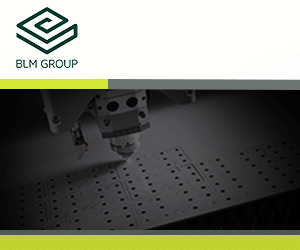Winners of Aluminum Extrusion Design Competition Demonstrate Versatility
Scholarships totaling $8,500 were awarded by the ET Foundation to designs used in things from sporting goods and medical equipment to industrial and infrastructure applications.
Posted: June 2, 2017
The ET Foundation, the educational and technology research organization founded by the Aluminum Extruders Council (AEC; Wauconda), has announced the winners in their Student 2017 Aluminum Extrusion Design Competition. More than 55 entries from 15 schools and universities from across the world were received. Scholarships totaling $8,500 were awarded to recognize the winning students’ designs featuring extruded aluminum components. From sporting goods and medical equipment to industrial and infrastructure applications, the students’ ideas highlight a variety of uses for and benefits of designing with aluminum extrusions. The competition was sponsored by Bonnell Aluminum Extrusion Company (Newnan, GA).
First Place (with a $3,000 scholarship) was awarded to Garen Gibbs, a sophomore studying industrial design at Purdue University (West Lafayette, IN), for his “Axial Bike Cargo Rack” with adaptable storage and integrated LED signal lights. The judges liked the expandable configuration, incorporated joining mechanism and hinged design. “My design uses the aluminum extrusion process to create a bike rack with a low process cost … [the] lightweight and reflective qualities [of aluminum] … enhance cyclists’ visibility and make commuting with excess cargo much more simple,” noted Gibbs. The sides of the rack fold inward to grasp cargo of varying sizes and nest neatly into the main body when closed. The remote-controlled LED lights with turn signal indicators provide optimum visibility of the rider.
Second Place (with a $2,000 scholarship) was awarded to Lauren Hughes, a senior studying product design at Aston University (Birmingham, UK), for her design, “Equi-Light” electric fence guiding poles. The lighted electrical fence provides assistance on horse farms when horses are guided to grazing paddocks in dark conditions. “The Equi-Light electric fence guiding poles uses technology available to take basic electric fencing to the next level,” said Hughes. She notes that “56 percent of horse owners have had a ‘close call’ when their horse spooks in the dark. These lights allow for horse owners to guide themselves and horses safely in dark conditions, lighting the floor in front of them and providing a safe ‘runway’ without the risk of accidentally walking [into] electric fence wire.”
Third place (with a $1,000 scholarship) was presented to Jesse Palma, a sophomore studying industrial design at Purdue University for the “Medpole” medical equipment stand. “Medpole is an interchangeable medical stand aimed to give nurses customization to transport medical equipment from patient to patient,” noted Palma. The Medpole is designed to accept any small machine or accessory by screwing it on to an attachment that slides into the slot. The design also accommodates an IV pole.
The 2017 Aluminum Extrusion Design Competition included a separate design category that challenged students to think about aluminum extrusions as a holistic design solution that incorporates LED lights and that uses aluminum extrusions for structural, thermal management and/or some other material advantages for the application. The Bonnell Aluminum LED Lighting Design Challenge award (with a $2,500 scholarship) was presented to Shinjin Wang, a junior studying computer engineering at Purdue University, for his “SolarLink” design. The design serves three main functions: as a bench, street light with solar powered tracking system and a WiFi station.
Finally, the judges felt that one additional design deserved recognition as an Honorable Mention. Alexander Hoppe, a home-schooled high school student from Burien, WA, won an honorable mention for his “Smart Signal Light”. The light “is an Internet of Things (IoT) connected, fully programmable LED light with a simple but versatile form,” wrote the student in his entry materials. The design consists of an extruded aluminum custom-designed profile with LED strips running down the sides and arranged in such a way as to be visible and identifiable from all directions, even at long distances. A wireless control module can be used to send commands to the device remotely changing the color/pattern of the LED strips to convey simple messages quickly and effectively.
The designs were judged by aluminum extrusion industry professionals, including David Asher, the process optimization manager at Bonnell Aluminum; Todd Boyer, the director of new business development at Mid-States Aluminum Corporation (Fond du Lac, WI); William (Bill) Rogers, the corporate director of metallurgy and process technology at Arconic (Pittsburgh, PA); and Craig Werner, the vice president of extrusion technology at Kaiser Aluminum (Foothills Ranch, CA).
To view the winning entries from the 2017 International Aluminum Extrusion Student Design Competition, as well as the winning entries from past student and professional Design Competitions, visit www.ETFdesign.org.














